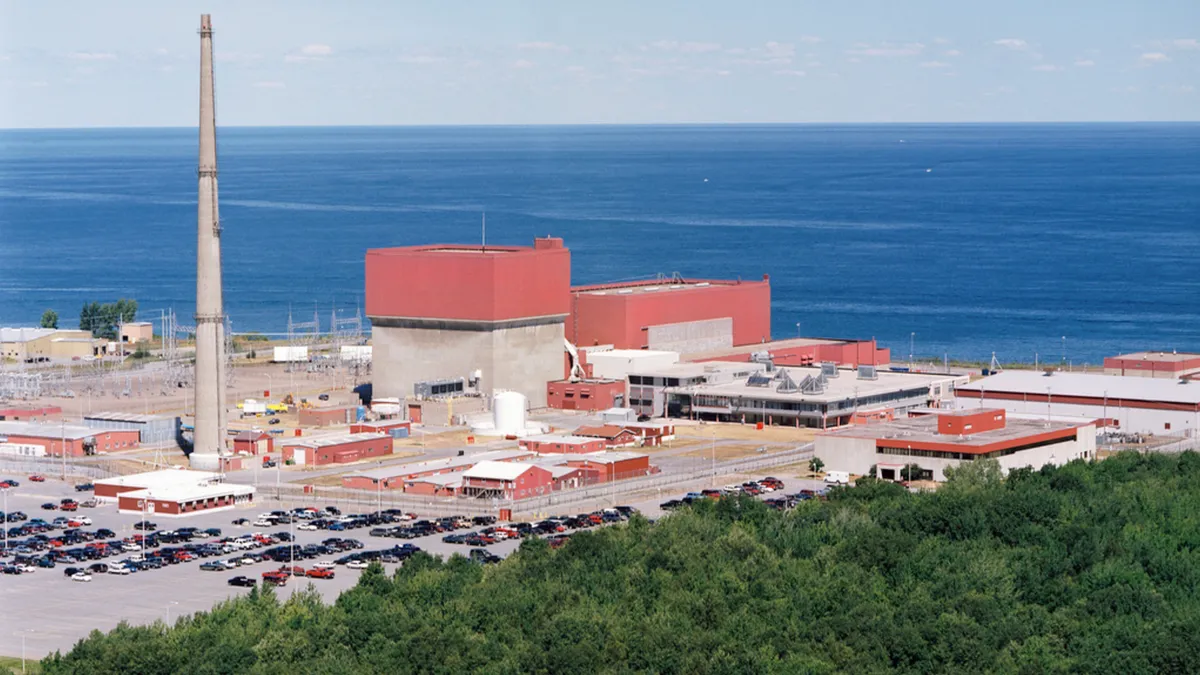Dive Brief:
-
The New York Public Service Commission, Exelon, the Natural Resources Defense Council and Environmental Defense Fund on Friday filed briefs in a New York federal district court seeking to dismiss a complaint about New York’s Zero-Emission Credit (ZEC) program, which would provide payments to keep in-state nuclear plants running based on their environmental attributes.
-
In October, a group of electric generators filed a lawsuit challenging the nuclear subsidies, which the PSC approved in August, arguing that they intrude on federal jurisdiction of wholesale markets.
-
The case is being closely watched as an indication of how similar efforts in other states will fare or might follow New York’s lead.
Dive Insight:
Illinois recently passed energy legislation, the Future Energy Jobs Bill, that in many respects resembles the ZEC program in New York’s Clean Energy Standard. It has also been seen as forging a path that other states might follow to aid economically challenged nuclear plants.
Both the Illinois law and the New York measures were crafted to avoid pitfalls that have scuttled other states’ efforts to encourage in-state generation. In April, the Supreme Court struck down Maryland’s efforts in the Hughes v. Talen Energy Marketing case, and FERC blocked income supports for coal and nuclear plants in Ohio.
A crucial part of the Hughes case involved the state’s use of wholesale markets as part of its incentive mechanism, which the Supreme Court found invaded exclusive federal jurisdiction over wholesale power rates.
New York has sought to avoid those issues, but it has not managed to avoid legal challenges.
Subsidy payments to nukes under the New York program are set by the PSC and are equal to the social cost of carbon less the amount generators already pay for Regional Greenhouse Gas initiative allowances, and are further reduced to account for the amount by which future NYISO energy and capacity prices are forecast to exceed $39 per MWh.
The complaining generators argue that the contracts the nuclear generators sign with the New York State Energy & Research Development Authority will disadvantage out-of-state generation in violation of the dormant commerce clause of the Constitution. They also invoke Hughes to argue that the ZECs will skew prices in New York’s wholesale market in conflict with the supremacy clause of the Constitution.
The New York PSC rejected that sentiment in a statement.
“The companies challenging New York’s Clean Energy Standard have the sole interest of promoting the dirty fossil fuel industry and gaining windfall profits that would result from higher electricity prices. These companies are wholly unconcerned about the beneficial environmental and public health impact resulting from New York’s Clean Energy Standard.”
And although the lawsuit is aimed only at the ZEC program, the fossil fuel generators’ argument, if successful, could create uncertainty for scores of state renewable energy policies in states across the country, the NRDC said in a statement. “With President-elect Trump considering climate skeptics to head key federal agencies, we need to make sure that states like New York can continue to lead on clean energy and climate.”













